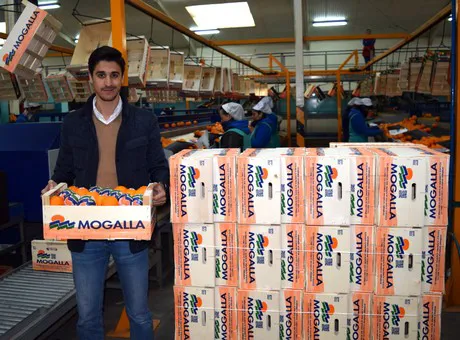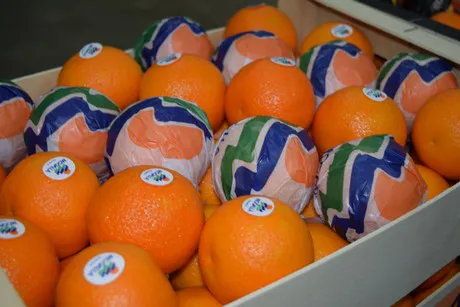With the marketing of mandarins in the south of Spain virtually finished, orange traders are facing the last stage of a citrus campaign to forget. The asphyxiating competition from third countries, the rise of the minimum wage, the weather conditions and the low prices paid by the processing industry have been some of the most limiting factors.
"At the moment, we are harvesting and marketing Lane Late, Navel Powel and Chislet oranges, and we will continue later with the Valencia Late and Midknight until the end of June," says Daniel Blanco, commercial director of the Andalusian company Mogalla, which ships citrus mainly to European countries, but also has some established markets outside Europe, such as Canada, and to a lesser extent, South Africa and some Asian markets.

In general, the demand for Spanish oranges is low this season and prices have hit rock bottom. According to Daniel, the lack of demand for Spanish citrus during the whole campaign adds to the fact that the weather during the winter was not ideal, as very warm temperatures were recorded, as well as little rain. This has taken a toll on the quality of the fruit, whose shelf life has been shorter than in other campaigns. "This limited demand, in combination with the strange weather we have recorded, is also causing Spanish producers to become more concerned about seeing so much fruit on the tree at this time of the year, leading them to try selling their oranges at any price in order to get rid of them and prevent having to leave some on the tree, as has already happened with some varieties this year."
Another important factor is the competition with other origins, which is making things increasingly difficult for Spanish citrus exporters. "Although there has been much talk of South Africa this campaign, there are also other countries, such as Egypt or Morocco, which have seen their volumes grow and which also have low production costs, thus making the sale of Spanish oranges and mandarins more difficult. The fruit from these countries is sold in European markets at prices with which we cannot compete in Spain. I believe that Egypt in particular is becoming a tough competitor to take into account, with its great agricultural growth in recent years, its investments in large tracts of land and its logistics infrastructure, which is allowing it to reach Europe quicker and more easily."

"It is true that free trade prevails in most parts of the world, but this is only interesting if we all play with the same rules and conditions. Given the great loss of competitiveness that the Spanish citrus sector is experiencing, we should think of some kind of measure to be enforced by the European Union, before this becomes a serious crisis for the Spanish agricultural sector," he says.
As if all this wasn't enough, the minimum wage increase was applied in January, and it went from € 735.90 to € 900, leading to higher production costs (up by more than 20%). "For the citrus sector, which works with very tight margins, every cent counts. It simply wasn't ready for such a drastic rise in the minimum wage, at least in this situation of growing competition from third countries," says Daniel Blanco. "To compensate for this increase in costs, it would be necessary to get better sales prices, which is difficult, or to produce more and become more efficient in the production processes, which in many cases would entail investing in technology and innovation, and given the difficult campaign that we are going through, facing that kind of expense is challenging for citrus growers," he says.
 For more information:
For more information:
Daniel Blanco
Mogalla S.A.T.
Carretera Sevilla-Ayamonte,km 104.
Huelva, Andalusia. Spain
T: +34 954 934 272
M: +34 600 422 318
danielblanco@mogalla.com
www.mogalla.com
